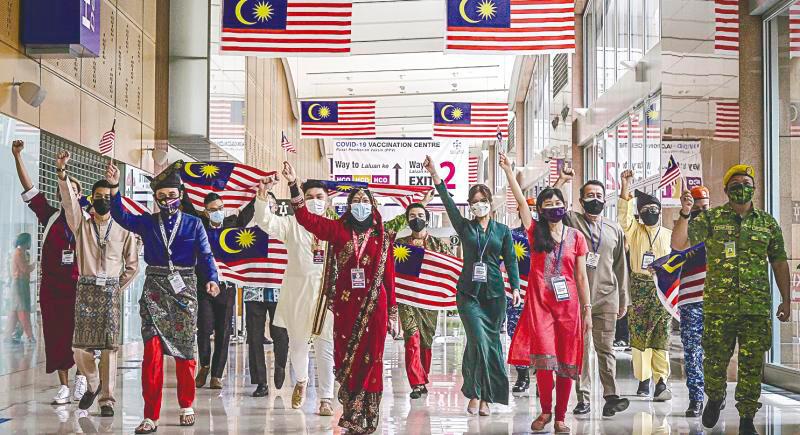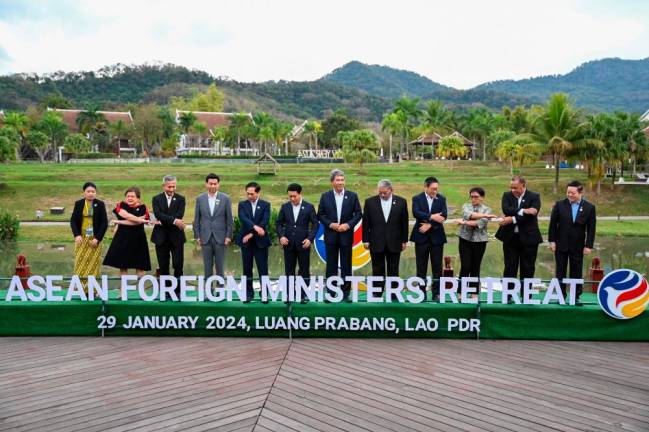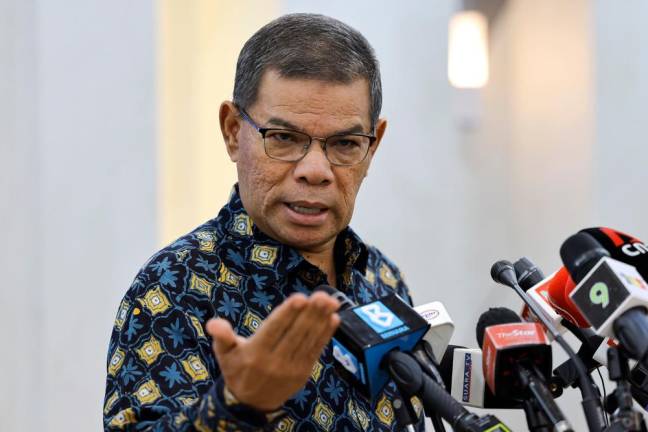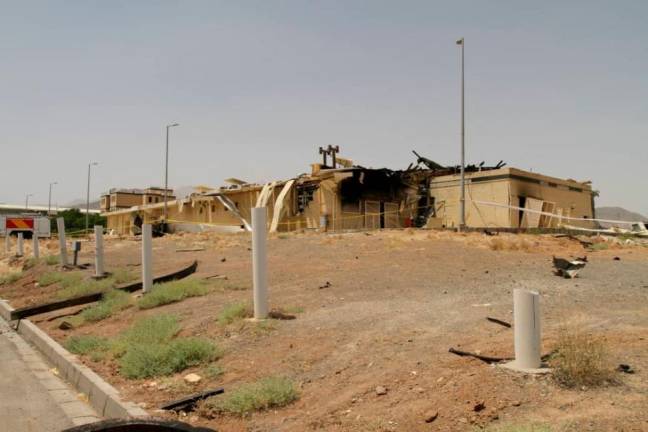FINALLY, one newspaper in Malaysia has found the courage to tell Malaysians the plain truth in a bold headline: “Climate change can kill us all”. On May 26, theSun laid bare the grim reality in a comment article by think tank researchers Heidi Young and Vanessa Wong.
To quote from the piece: “We are witnessing a world ablaze with environmental crises, yet many people remain apathetic” and “Furthermore, the unprecedented heatwave gripping our country serves as a deadly and cryptic warning of graver things to come.” The article ends with a remark that “we cannot adopt a self-centred, ‘not in my backyard’ mindset”.
It does not delve into the reasons for apathy or how we have come to develop a self-centred mindset. That is a mission that this writer will try to accomplish.
Let us start by asking: “What was the main issue that gripped Malaysians last month when the heat became scorching and the padi fields started drying?” Climate change? Not at all. What aroused the interest of politicians and religious leaders was a court ruling over the use of a word to designate God.
Prime Minister Datuk Seri Anwar Ibrahim was right in his opinion that the issue should be discussed behind closed doors but his critics sharpened their tongues for a clash of words with the government for its decision to withdraw its appeal against the ruling.
Turning religious issues into polemics will intensify the divisions within humanity. That is an irony because religion teaches that humans are an exceptional creation endowed by God, with brilliant intelligence beyond that of any other life form. It is brilliance that has blinded us through our folly in creating many red lines to demarcate the boundaries separating one religion from another.
Seven days ago, a political chief labelled the government as weak because it was not led by an ethnoreligious party. Such labelling makes race and religion the primary criteria for governance, rather than competence and an orientation towards putting the nation above sectarian interests.
Politics and religion are the two leading institutions of every civilisation, and they have determined the agenda for all human societies for the past 7,000 years. However, these two institutions are today responsible for dividing humanity and keeping it divided.
Not only have we failed to use our brilliant intelligence to forge a grand coalition of all religions transcending every difference, we have also failed to develop a shared global sovereignty, transcending all national rivalries despite the menacing threat from climate change.
To know why Malaysians remain apathetic towards climate change, take a look at the recent seven-year record. In 2017, CIMB Foundation commissioned a study on national identity, focusing on Peninsular Malaysia. The survey found that “respondents identified strongly with their religious groups”.
In 2019, Anwar warned that if racial and religious problems in the country go unchecked, it could destroy all moves to put the country back on track. In that same year, National Unity Foundation trustee Tan Sri Lee Lam Thye warned that all Malaysians must look beyond race and religion for the larger interest of the nation and its future development.
Architects of Diversity organised a “KamiNampak” social media monitoring campaign during the 15th general election (GE15) in November 2022 and noted that the use of race and religion escalated to dangerous levels during the election campaigning, with some party leaders even sowing the seeds of possible future violence.
On Dec 7, 2022 Emir Research president and CEO Dr Rais Hussin wrote a comment piece in theSun that “the citizenry must place the nation first, especially above sect and creed. Only by espousing a common identity can the collective interest of society be served with new policies, initiatives and programmes designed to lift all the rakyat together. Ironically, the common good is best served by recognising an individual’s best use to his country, more than to his community, religion or race.”
However, in March this year, a member of Parliament said in the Dewan Rakyat that houses of worship should be in different areas or at a distance from the house of worship of one religion, to avoid religious sensitivities. Going by his logic, no house of worship can be in the same vicinity as a house of worship of another religion. Surely, this is asking Malaysians to live in concrete silos.
Just a week ago, Deputy Prime Minister Datuk Seri Dr Ahmad Zahid Hamidi urged the relevant authorities to monitor social media for race-and religion-based narratives used by politicians for political mileage. A day before his call, the media had reported that offensive racial and religious narratives, instigated by politicians, dominated the social media platforms during GE15.
The exhortations of wise men are going to naught, and with our mental energies dissipated by racial and religious aggravation, there can be no great resolve to fight climate change. This apathy is borne out by Deloitte’s 2023 Gen Z and millennial survey conducted in 44 countries. The survey established that climate change is not on the list of the top five issues of greatest concern to Malaysians, whereas climate change is the second or third issue of greatest concern gobally.
You know it yourself because climate change is never a topic at state or national elections. The reason for apathy is clear from the findings of neuroscience. If our minds get perpetually entangled in racial and religious undercurrents, like the feet of a diver entangled in seaweeds, something called “attentional bottleneck” develops and it is similar to a massive traffic jam that grinds you to a slow crawl. Our ability to survive climate change is being impaired by racial and religious obsession.
Yet, climate change is also an invitation to put on a new mind. Climate change reminds us that we live in a shared world in which everything is interconnected, and so we must strengthen interdependency. As Best Actress Tan Sri Michelle Yeoh said to Harvard University graduates last month: “Most success stories are less about competition and more about collaboration.”
Fighting climate change requires a whole-of-humanity focus. This means every person, ethnic community, culture, nation and religion must collaborate to live in harmony with everything else.
As far back as 1859, there already existed published scientific evidence that all life on earth from germs to humans are related, interconnected and interdependent. Some 160 years later, scientists have been able to prove mathematically that everything in the universe is connected to everything else and that everything is derived from strings of energy.
As reported by theSun on May 24, National Council of Professors senior fellow Datuk Dr Jeniri Amir commended the people of Sabah and Sarawak for having learnt to live together. “They understand that there are differences between their religious practices, and they have embraced them.”
In fact, science has given us a compelling reason for embracing differences. It is because differences are the reason there is life. There are no fundamental differences in nature, and in later articles, we will show you why natural differences are so essential and why there are contrasting doctrines between religions. These articles will show you the way to harmonise theological differences.
The writer champions interfaith harmony. Comments: letters@thesundaily.com














